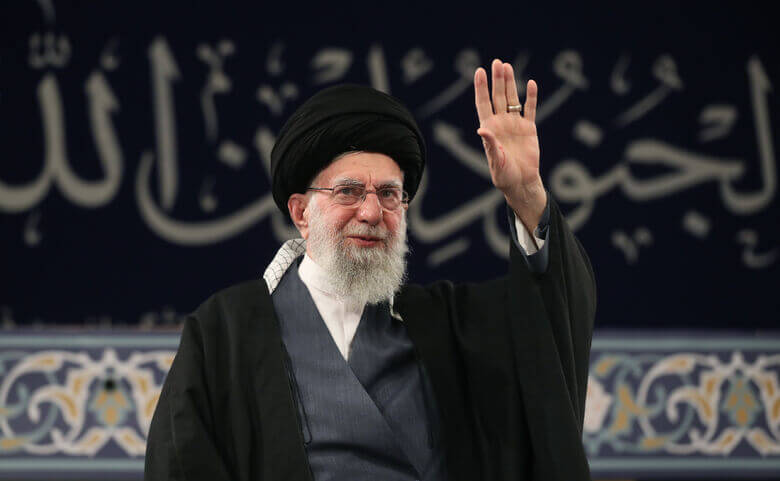The regime in Tehran has little reason to worry about retaining its overwhelming majority in the parliamentary elections next Friday. However, it approaches the elections fearing that they might confirm numerous long-term negative trends.
Like the previous one, this election cycle was also marked by repression against potential political opponents from the ranks of reformists, with tight control of candidacy so that one of the pillars of the theocratic power would not be threatened.
The ruling ultra-conservatives will definitely win a convincing majority in parliament (Majlis) and the Assembly of Experts next Friday. But will that victory be worth celebrating?
Both bodies, whose representatives will be elected by Iranians, have an almost ceremonial role in the state decision-making system. The 290-member parliament does not influence the principal directions of state policies but serves as a facade for their quasi-parliamentary verification.
Its secondary role has been reduced even more in recent years, which has caused quite a lack of interest in the election of deputies among citizens. In this apathy lies one of the reasons for the discontent with which the regime enters the elections, even though it is the undisputed favourite.
The fight for the highest possible voter turnout
The elections next Friday will primarily be a struggle of the establishment for the largest possible turnout. Its low-level worries officials, and they do not have many ways at hand to increase it.
Even though the parliament will function normally, the tendency of low voter turnout reflects the low legitimacy of representative institutions. For the regime it also represents a form of boycott by an apathetic population against the government.
The current outgoing Majlis were elected 4 years ago with a voter turnout of just 42%, the lowest level since the 1979 Islamic Revolution. There are no reliable surveys to predict next Friday's turnout, but there are suggestions that it could now be even lower.
As many as 68% of Iranians were dissatisfied with the work of the parliament, and most did not even know the name of the president
A survey by pro-government media from last July showed that as many as 68% of Iranians were dissatisfied with the work of the parliament, and most did not even know the name of the president.
Research by Iranian centres in the West shows even greater apathy. Even 75% of the population does not plan to vote, and close to half do not know that elections will be held.
The regime has long been aware of the risk of widespread political apathy. However, only in recent days, since the campaign has been officially under way, has it been intensively calling for elections.
"Everyone should participate in elections. It is important to choose the best person, but the priority is for people to participate”, said Supreme Leader Ayatollah Ali Khamenei last Sunday, somewhat commandingly.
Apathy as a consequence of repression
The political apathy is a consequence of the constant repression, which the regime has been systematically implementing against the reformists. This is why the citizens do not see the purpose of participating in the predetermined race.
On the eve of the forthcoming elections, the practice of mass disqualification of ineligible candidates by the Council of Guardians, a 12-member body that directly (half) or indirectly appoints the supreme leader, was repeated.
There are no policies offering to end the high inflation, stop crime and the mass exodus from the country due to difficult living conditions
One of the disqualified is the former moderate president of Iran, Hassan Rouhani, who will cease to be a member of the Assembly of Experts after 24 years.
Disinterest in the outcome of the election also arises from the fact that citizens do not regard the elected representatives as a factor that could influence the improvement of the disastrous economic and social situation.
There are no policies and plans offering to end the high inflation, which is around 50%, stop crime and the mass exodus from the country due to difficult living conditions, water shortages, high unemployment, and expensive health services.
Competition of factions within the regime
Elections for parliamentary representatives are perceived as a field where the real fight will be fought between different conservative factions within the establishment for the most influential positions.
This competition is particularly significant for the 88-member Assembly of Experts, a body with no special powers during its 8-year mandate except for electing the supreme leader.
Considering the age of the current leader, Ali Khamenei (84), it is quite possible that the Assembly of Experts, which will be elected on March 1, will be in a position to decide on his successor as the most influential political figure in the country.
 Considering the age of Ali Khamenei (84), it is quite possible that the Assembly of Experts, which will be elected on March 1, will be in a position to decide on his successor
Considering the age of Ali Khamenei (84), it is quite possible that the Assembly of Experts, which will be elected on March 1, will be in a position to decide on his successor
The regime welcomes the elections with a degree of uncertainty, perhaps even suspense because it will be the first declaration of the citizens after mass protests over the murder of activist Mahsa Amini in September 2022.
The authorities responded using harsh repression to a series of civil protests. However, the government has not obtained credible feedback on whether it really succeeded in silencing the widespread revolt.
The low voter turnout, which is quite definite, will also be a significant response of the citizens to the regime's repression. The authorities face a rather unpleasant encounter with mass civil discontent, and even the expected convincing victory will not be consoling.